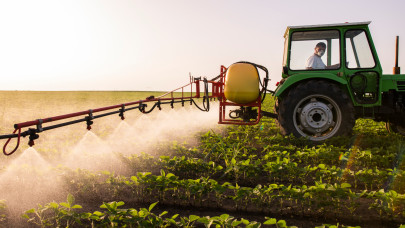Fisheries
Fishing opportunities in the Atlantic, North Sea, Mediterranean and Black Sea for 2022
Over the course of the two-day meeting, member states took part in trilateral consultations to determine fishing opportunities for the majority of commercial stocks in EU and non-EU waters, the Mediterranean and the Black Sea. These consultations are set to continue on Monday evening until a final political agreement is reached on fishing rights for 2022.
In December each year the Agriculture and Fisheries Council meets to set the following year's catch limits – also known as total allowed catches (TACs) – for most commercial fish stocks, along with national quotas for each species with a view to ensuring the sustainability of fish stocks and the EU fishing sector, as well as environmental, economic and social dimensions of fisheries. The stocks concerned are those the EU manages on its own, jointly with neighbouring non-EU countries, or via agreements reached under the regional fisheries management organisations (RFMOs).
The Council's decision is based on a proposal drawn up by the European Commission, taking into account the best available scientific advice, the aims of the common fisheries policy (CFP) and the maximum sustainable yield (MSY) set for each species.
Agriculture
Crisis contingency plan for food security
The Council adopted conclusions on the European Commission's contingency plan for ensuring food supply and food security in times of crisis. The aim of the plan is to prepare for potential future challenges including extreme weather events, plant and animal health issues, and shortages of key inputs such as fertilisers, energy and labour. Ministers welcomed the initiative and acknowledged the importance of building on the lessons learned from the COVID-19 pandemic. In particular they highlighted the importance of maintaining cross-border mobility of people, goods and capital, including during times of crisis.
- Council approves conclusions on new plan to safeguard Europe's food supply (press release, 13 December 2021)
- Council conclusions on the contingency plan for ensuring food supply and food security in times of crisis
- Communication from the Commission: Contingency plan for ensuring food supply and food security in times of crisis
Unfair trading practices in the food supply chain
A political debate took place on the issue of unfair trading practices (UTPs) in the EU's food supply chain. The discussion focused in particular on two key EU-level tools for combatting UTPs in agriculture: Directive (EU) 2019/633 and measures established as part of the common agricultural policy. Based on their experiences at national level, ministers shared their perspectives on the effectiveness of these tools in strengthening the position of farmers in the supply chain.
Other topics on the agenda
The Council received information from the presidency about the state of play of negotiations on the fisheries control regulation and the BIOEAST initiative; the latter was also the subject of a declaration shared by the Hungarian delegation on behalf of the 11 BIOEAST member states. The Commission updated ministers about the proposed regulation on deforestation-free products and ways to improve the effectiveness of public investment under the European Maritime, Fisheries and Aquaculture Fund. Other points raised by member states included keel bone fractures in laying hens (Denmark), sustainability in the food supply chain (Slovakia), agri-food exports to China (Lithuania), rising prices for agricultural inputs (Spain), the CAP strategic plans, and issues in the pigmeat sector (both Czechia).
- Proposal for a regulation of the European Parliament and of the Council as regards fisheries control
- Proposal for a regulation of the European Parliament and of the Council on the making available on the Union market as well as export from the Union of certain commodities and products associated with deforestation and forest degradation and repealing Regulation (EU) No 995/2010
- Conclusions of the virtual high-level BIOEAST Foresight Conference (27 September 2021) - information from the presidency
- Joint festive declaration of the Ministers of Agriculture of the Visegrad Group (Czech Republic, Hungary, Poland and Slovakia), Bulgaria, Croatia, Estonia, Latvia, Lithuania, Romania and Slovenia on the five-year anniversary of the BIOEAST Initiative
- Common approach to reducing the number of keel bone fractures in laying hens ‒ information from the Danish delegation
- Transforming the food supply chain towards sustainability – lessons learned from the EU Code of Conduct – information from the Slovak delegation
- Rising costs of fertilisers and raw materials for animal feed and their impact on the agricultural sector – information from the Spanish delegation
- Preparation of the CAP strategic plans and implementation of the new CAP reform – information from the Czech delegation
- Critical situation of the pig sector in the EU – information from the Czech delegation
A items
The Council adopted without discussion the items that figure in the lists of legislative and non-legislative A items.
Farming statistics
Ministers adopted an amendment to Regulation (EU) 2018/1091 as regards the EU's contribution for integrated farm statistics under the 2021-2027 financial framework. This regulation aims to ensure that further financial support is provided to member states to collect data on the structure of agricultural holdings by fixing the related financial envelopes for the period 2021-2027.
Delegated acts under the common agricultural policy 2021-2027
The Council confirmed its intention not to raise objections to two delegated acts supplementing the provisions of the reformed common agricultural policy (CAP). The first act sets out additional requirements for certain types of intervention specified by member states in their CAP strategic plans and rules on the ratio for good agricultural and environmental condition (GAEC) standard 1. The second act establishes rules on paying agencies and other bodies, financial management, clearance of accounts.






